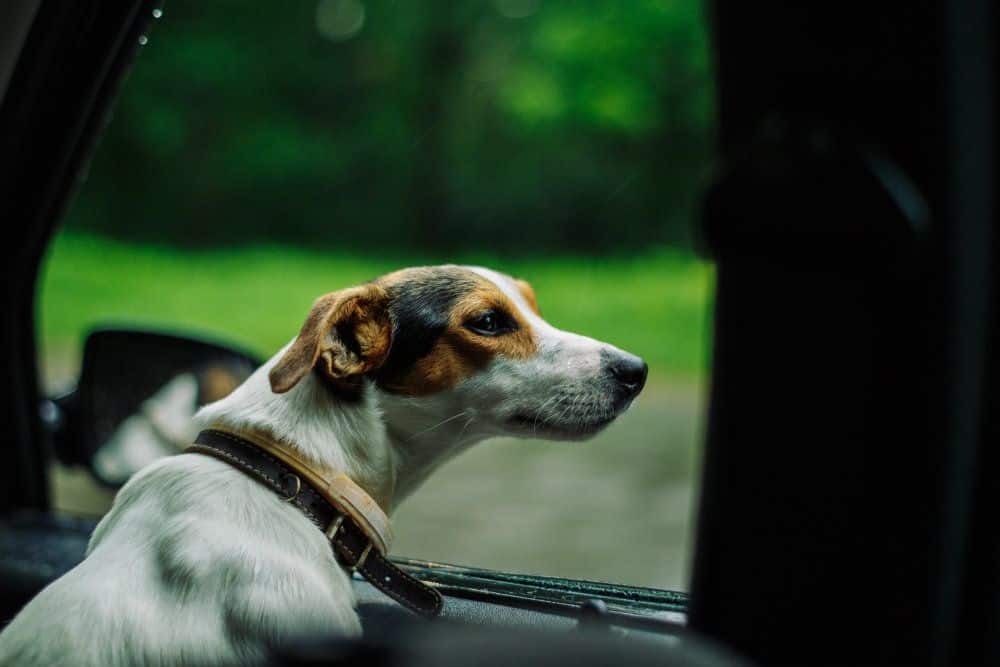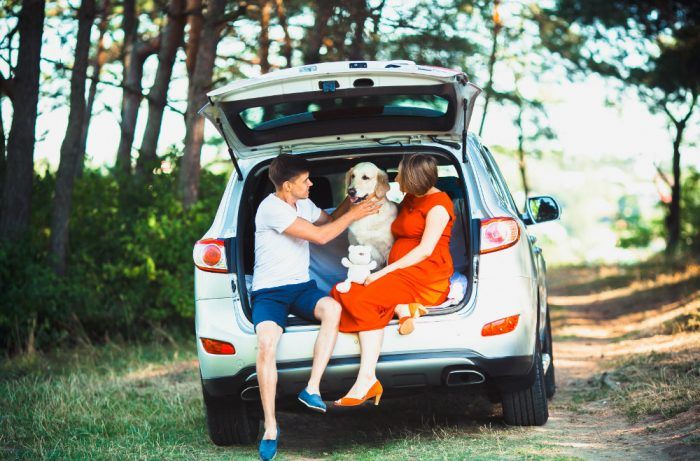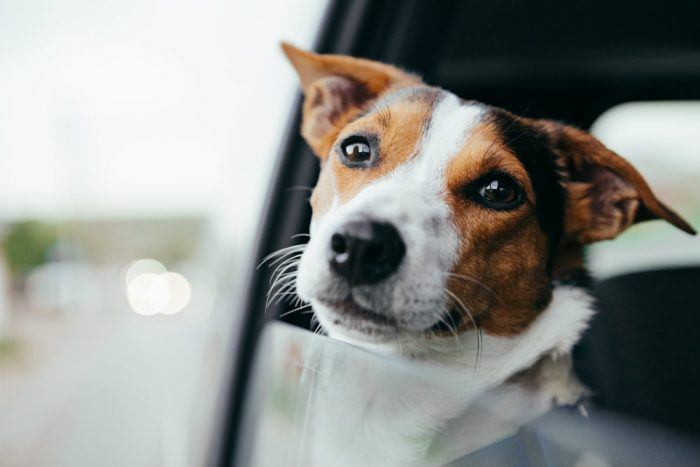Here at this publication, we love animals as much as we love cars. However, a new study from Volvo found some pet owners are hesitant to take a road trip with their best friend. Volvo Reports: Dogs, Cars and the People Who Love Them was recently conducted online by Harris Poll on behalf of Volvo among 2,000 U.S. adults ages 18 and above, including 1,342 pet owners.
“Our survey showed that pet parents want to travel with their furry friends, but worry about safety,” explained Jim Nichols, Product and Technology Communications Manager, Volvo Car USA.
Survey Says
The study found that more than a third (38 percent) of millennial pet owners worry about driving with their dog. Among all demographics, nearly a quarter (24 percent) say they keep their dog at home because of safety concerns. Not surprisingly, a majority of Americans (69 percent) view their pets as family members, with millennials being the most pet-conscious generation. Over 50 percent of millennial respondents said they buy better food for their dog than themselves. Nearly 50 percent said they would decline a night out if it meant leaving their dog at home.
“Overall, there is an awareness opportunity among pet parents,” Nichols said. “I was most surprised that nearly one in four would leave their dog home on long trips for fear about their safety.”
Addressing The Hype
In 2011, the Center for Pet Safety began crash testing pet safety products and launched a certification program for harnesses, crates, and carriers. The certification and crash testing programs, carried out by MGA Research Corporation, are voluntary and a rating is assigned accordingly. Passing products are given a designated seal for packaging.
We did a special report on the science of pet safety last year and were amazed at how easily consumers can be misleading. Oftentimes, pet safety products hardly live up to their claims. In fact, during crash testing with a “dummy dog,” some of the products outright failed, leading to injury and certain death for the animal. The Center for Pet Safety published the results of their controlled testing, complete with videos and an analysis of the data. The videos are hard to stomach if you’re a pet lover.
“The pet products industry is a 70 billion dollar, highly unregulated industry,” explained Lindsey Wolko, Founder of the Center for Pet Safety. “When it comes to marketing it’s the Wild West.”
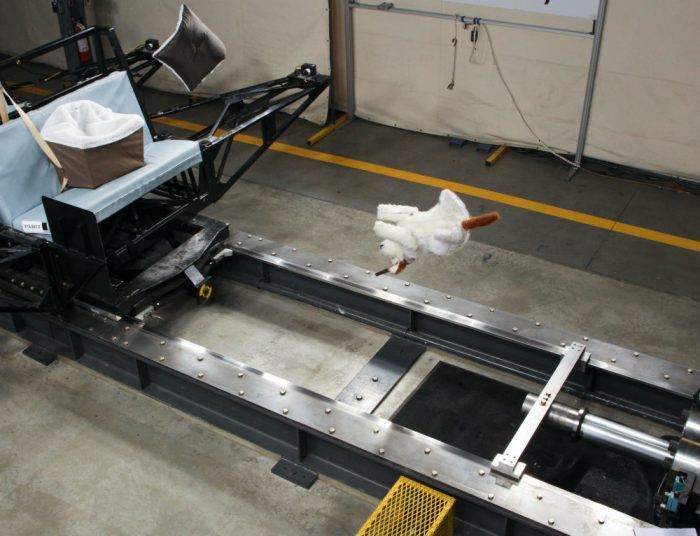
Essential Insights
Wolko advises consumers be mindful, even if pet safety products say “crash tested” or advocate to be in the pet’s best interest.
“The idea that properly secured pets are uncomfortable if restrained is a dangerous marketing tactic,” she said. “We have scientifically proven that extension tethers and ziplines increase the risk of injury to both the human passengers and their pets. This is a very real danger for pet owners who buy into the marketing hype behind a product.”
“Not only is the safety for your pets important but also the safety of everyone in the car,” explained Lauren Witt, a Detroit-based Automotive Product Specialist who works with major manufacturers. “If your dogs are not properly secured and have the ability to roam around, they could be a huge distraction for the driver.”
In Volvo’s survey, 97 percent admit to unsafe driving habits with their pets, including 48 percent who do not own any pet-specific safety gear. Another 41 percent let their dog ride in the front seat while only a mere five percent have a built-in pet safety system for their vehicle.
“Some pet owners seem to think their pets are immune to danger,” Wolko said. “Not that we wish this on anyone, but if they experienced what the people who have contacted us to report injuries and deaths of pets in car crashes have, we would have a much higher percentage who protect their pets while traveling.”
Meaningful Solutions
71 percent of respondents felt automakers should proactively include more pet-friendly safety features into their vehicles, especially for dogs. Another 46 percent believe vehicle manufacturers that do not offer these features do not care enough about pet safety.
“I wouldn’t say they don’t care – I think it’s just something that was never emphasized in the industry,” Witt said. “The automotive industry is always evolving and manufacturers are always trying to stay up-to-date and ahead of the game when it comes to safety.”
“We have to ensure the solutions are real and meaningful,” Wolko added. “I’ve seen several vehicle manufacturers offer travel ‘solutions’ for pets that were a joke – simply a marketing tactic. That’s not what we need.”
Volvo has pioneered a number of safety innovations – the iconic three-point seat belt, for example – and is examining what the survey’s results ultimately mean. Volvo already has pet safety accessories that directly tie into the vehicle, including a dog harness and gate, load compartment divider, and protective steel grill. The automaker says their safety systems work in unison to ensure occupants, furry or otherwise, are protected as much as possible.
“All accessories must past strict quality and testing requirements set by the company; the dog gate, divider, and rear grill are made of high-strength steel,” Nichols explained. “Volvo is the only manufacturer that has been developing protective steel grills and dog gates for over 20 years to keep pets in place in the event of an accident.”
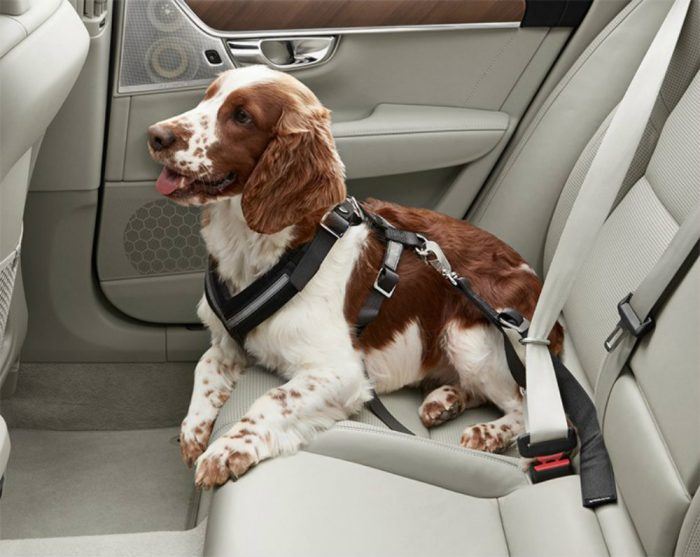
Ongoing Work
Wolko notes that Volvo’s survey is revealing, but not necessarily surprising and believes more needs to be done. The Center for Pet Safety continues to team with vehicle brands in the interest of creating truly safe products for pet parents. She is optimistic that automakers can rise to the challenge, but has some reservations.
“The work we do at the Center for Pet Safety focuses on the aftermarket products for a reason, and I honestly feel the aftermarket brands that have achieved CPS Certification are far ahead of the vehicle manufacturers,” Wolko explained. “There are so many challenges for a vehicle manufacturer – their primary responsibility is to the safety of the human passenger – and that’s where the regulations around safety stop. The reality is that pet safety is not likely to be regulated.”
“Hopefully this survey will make manufacturers more aware of the importance of pet safety to their consumers,” Witt added. “It is worrisome there are not a lot of safe options for pet travel.”
How pet safety products are engineered and designed ultimately determines if they will be effective in protecting our furry family members. However, Wolko stresses the importance of communication and goes back to the marketing angles that ultimately influence buying decisions. She believes in this area automakers can truly set an example.
“Ideally, I’d like to tweak a few things in vehicles, but until we build consensus across the automotive industry it is unlikely to be a universal change,” Wolko said. “It’s important to focus on indirect messages of safety when pets are featured in vehicle commercials – they need to be properly secured while featured in those commercials. It doesn’t mean you lose the humor and charm of the commercial, but instead it becomes a familiar visual and an emotional element: it’s an ‘I protect you because I love you’ story in these commercials.”
“As shown in this survey, pets are part of the American family and we seek to protect what is important to those that drive a Volvo car,” Nichols added.
Future Considerations
The pet survey is the first in a series of Volvo Reports from the automaker and Harris Poll meant to examine the American opinion across four central automotive themes: design, safety, technology, and environment. While universal change with regard to pet safety and the automotive industry may seem a slow process, Volvo’s survey is promising. It shows how automakers need to remember our pets when designing future vehicles, and it shows an increasing awareness for the lovable creatures in our life.
“It makes me happy that a lot of people do take pet safety into consideration,” Witt said. “The best advice I could give is to make sure you think about your pets first.”
Carl Anthony studies mechanical engineering at Wayne State University, serves on the Board of Directors for the Ally Jolie Baldwin Foundation, and is a loyal Detroit Lions fan. Before returning to school, he simultaneously held product development and experiential marketing roles in the automotive industry.


